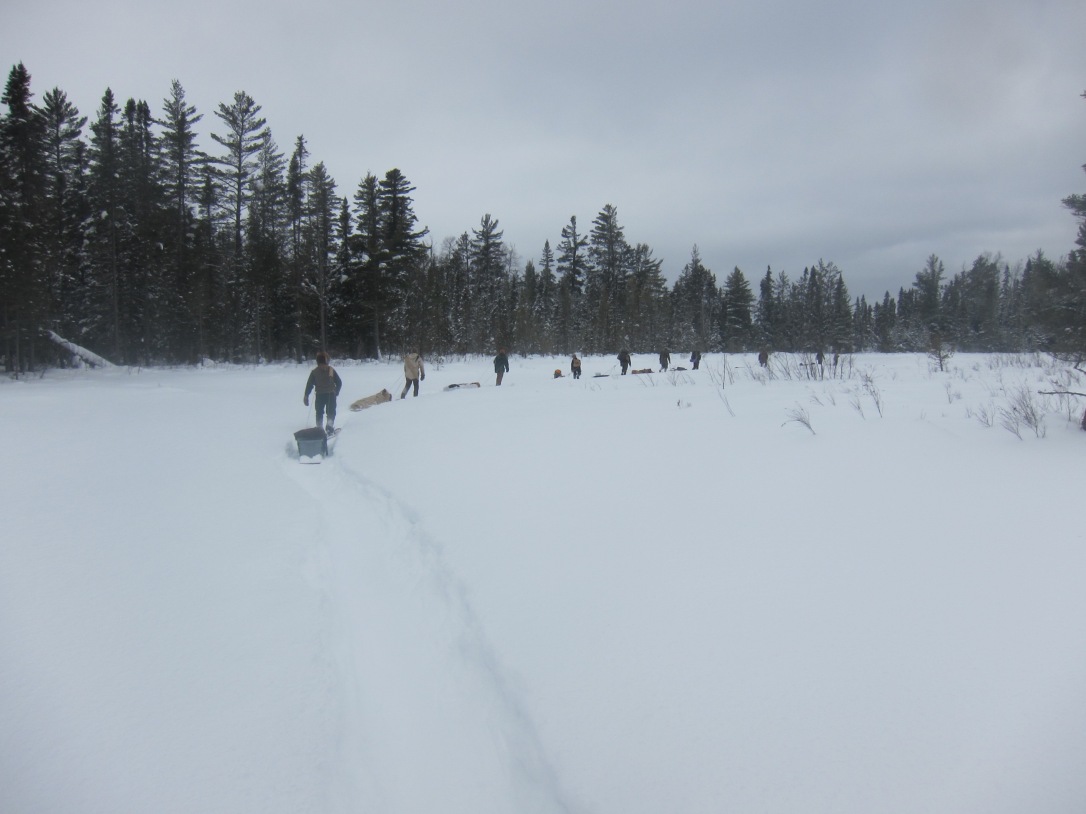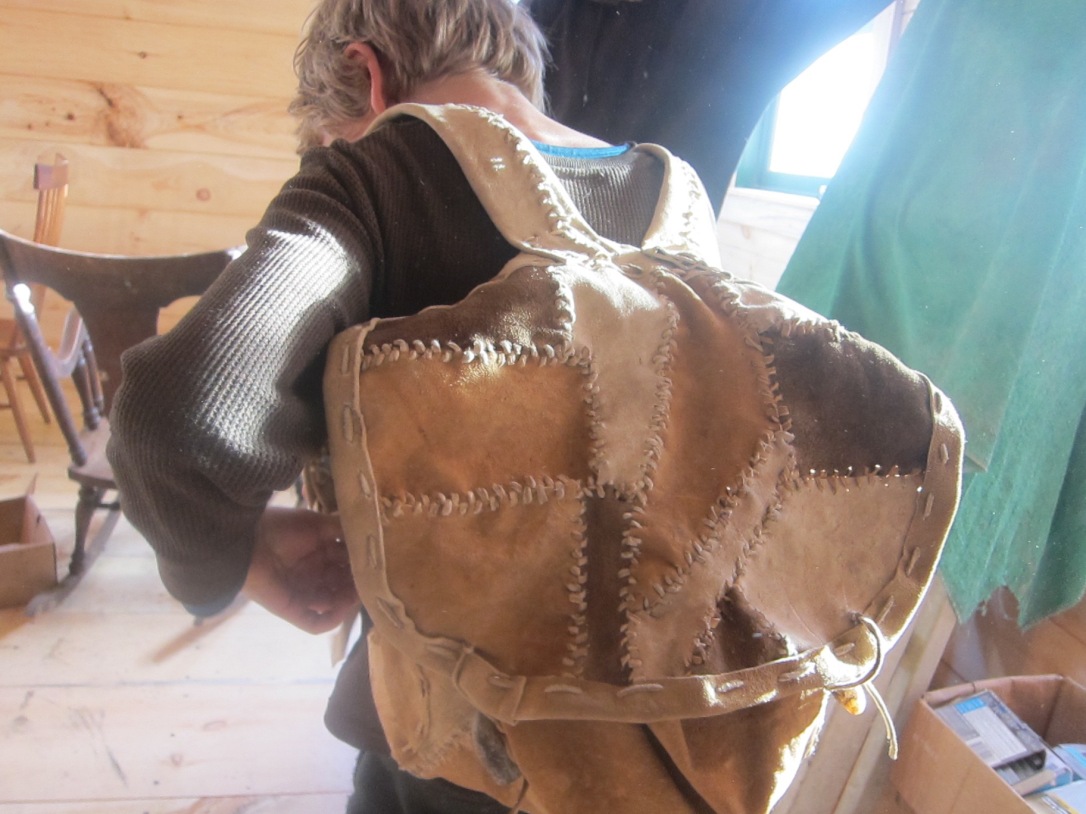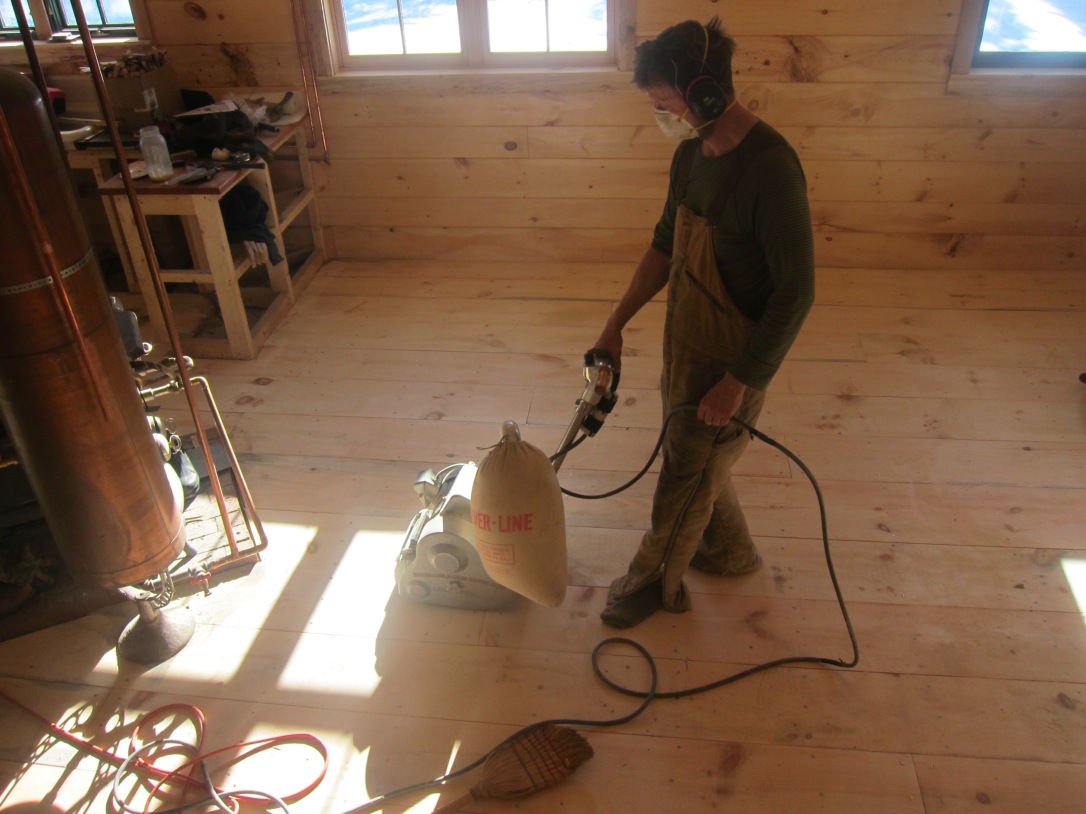
Forty-eight hours after I walked the frozen stream a heavy rain began. It rained hard all that night and by morning the water had risen and reopened, pushing sheets of ice onto the banks and into the surrounding forest, pieces of a strange and unsolvable puzzle.
It is hard for me to grapple with the calendar; hard to believe it is almost March. All told, we’ve had maybe a month’s worth of true winter weather, and it feels as if spring is coming too fast, too soon. This does not make it unwelcome, but part of me is disappointed to be cheated out of the sense of a accomplishment a good, hard winter brings. You make it through a real northern winter – a winter like we had last year, or even the one before that, when we burned every last scrap of firewood in the shed and even dipped into the sugaring wood – and you can’t help but feel a little pleased with yourself. Not quite proud, just… satisfied, I guess. There’s not much satisfaction in a winter like this one.
The conversation of late has been about craft and competence and learning, in no particular order. Partly this is because my family just returned from spending a long week with a group of people who have devoted their lives to their relationship with the physical world, in the process elevating many of their skills to the realm of craft. “I wish I’d known it was possible to live like that when I was 20,” Penny said, or something like it, and I recalled something our friend Nate told me once (he being one of those my family spent time with in Minnesota, and one who long ago crossed the threshold from competence to craft in most of his handwork): “There came a point when I realized I didn’t know anything that really mattered.” This was after college, after embarking on something that looked vaguely career-like, after his 30th birthday had come and gone. This was two birch bark canoes, a couple pairs of snowshoes, many axe heads and beaver tail knife sheaths and nights under the stars and lord knows what else ago.
Concurrently, someone mentioned to me that she feels “competence shame” when she reads my work in this space, and I wanted to laugh (but didn’t, because – and this may surprise you – I’m actually a pretty sensitive guy), because of course I feel it, too. Every time I work with Michael, whose building skills are greater than mine will ever be, I feel it. Every time I have to call my friend Paul to help me puzzle through something or another, usually plumbing or electrical related, I feel it. When Luke comes and gets the sawmill running in 23 minutes flat, after I’d already fiddled with the loutish contraption for three infuriating and futile hours, I feel it. There’s more, of course. Actually, I could go on like this for quite some time.
Concurrently again, someone sent me a link to this movie, which I haven’t yet been able to watch in full, but enough to know is about the ways in which western-style education is insidiously eradicating the traditional land based culture in Ladakh. Watching it, I couldn’t help but think that of course the exact same thing happened here; it’s just not so noticeable, because our own land-based culture didn’t last terribly long, perhaps in part because it was itself founded on the eradication of land-based cultures that had thrived here for millennia. Maybe we believed we were always destined for something better. Manifest destiny, and all that.
So. What of my reader’s competence shame? What of mine? What of Penny’s wish that she’d known of certain possibilities almost three decades ago? What of our friend Nate’s realization, the one that spurred him to shift the trajectory of his life in profound ways? These are all, on some level or another, an outgrowth of a cultural meme, one in which our children’s formative years are defined by an educational system that feeds economy first and foremost. Job creator, employee maker, profit taker. Competence as defined by numbers, not by a piece of wood taking shape in the hands. Not a shelter finding its form. Or even something as simple as a meal cooked over fire.
It’s intimidating to consider everything we don’t know, all the ways in which we lack competence, to say nothing of craftsmanship. It is for me, anyway. I know it is for Penny. Certainly for my reader. I bet it was for Nate, even, and might still be at times, despite all he does and does so well. Truly, it can be discouraging, particularly in the inevitable event of comparison with one who has elevated competence to craft. On the drive home from the Davy Knowles concert last month, Fin, an avid guitarist, said “I’m not sure whether to be inspired or depressed.” I thought of all the truly great writers I know of, the ones whose words flow as fluidly as Davy’s notes. I knew exactly, immediately what my son meant.
I guess this is what I want to say – to my reader, to my son, to my wife, to myself, even: The comparisons are inevitable. It’s human nature. There will always be someone whose skills are greater, whose experience is deeper, who has elevated incompetence to competence and then to craft and now seems destined for something even grander. Who plain and simple knows more about the things we wished we knew more about ourselves. If you don’t accept that, it’ll drive you mad. Or worse yet, make you want to give up.
If this is the way you feel, I really think there’s only one thing to do, although there are probably many versions of how to do it. For what it’s worth, here’s mine: Go outside and build yourself a little fire. Pull up a stump or just sit on the ground. Put a chunk of meat on stick or, if you don’t eat meat, one of those gawdawful “notdogs.” Sit there and cook whatever you’re cooking and think about a couple of things.
For one, maybe cooking a meal over a fire you built yourself is enough to make you feel better. I know it works for me.
For another, it’s sure as hell not your fault you were raised in a culture that is doing its level best to eradicate human competence in the physical, non-human world.
Finally, while there is an inherent reward in competence (and presumably craft, though I have little-to-no experience in this realm), there is even greater reward in the process of achieving competence, the slow evolution of skill that stubbornly, lurchingly blossoms under repetition. What I’m saying, I guess, is that competence is not a prerequisite for gratification.
And if you stick with it long enough, remembering to be buoyed along the way by the small satisfactions of process, one day, just maybe, you’ll realize you can hardly remember a time you didn’t know how.


 It’s been an awful, dirty ragged sock of a winter. Already we’ve had more thaws than I have fingers to count them on, and not just because I’ve gotten careless with the table saw. 40-degrees one day, a dozen below the next. Rinse and repeat. Snow in sporadic bursts, hardly enough to cover the detritus emerging from the previous thaw. The damn dog dug out a front hoof from one of the lambs we slaughtered, and then the rain revealed it, and when my wife tried to throw it back to the compost pile she instead hit the truck mirror and broke it to bits. So now when I’m trying to hitch up to the trailer I have to keep getting out and walking around to see how close I am.
It’s been an awful, dirty ragged sock of a winter. Already we’ve had more thaws than I have fingers to count them on, and not just because I’ve gotten careless with the table saw. 40-degrees one day, a dozen below the next. Rinse and repeat. Snow in sporadic bursts, hardly enough to cover the detritus emerging from the previous thaw. The damn dog dug out a front hoof from one of the lambs we slaughtered, and then the rain revealed it, and when my wife tried to throw it back to the compost pile she instead hit the truck mirror and broke it to bits. So now when I’m trying to hitch up to the trailer I have to keep getting out and walking around to see how close I am.



